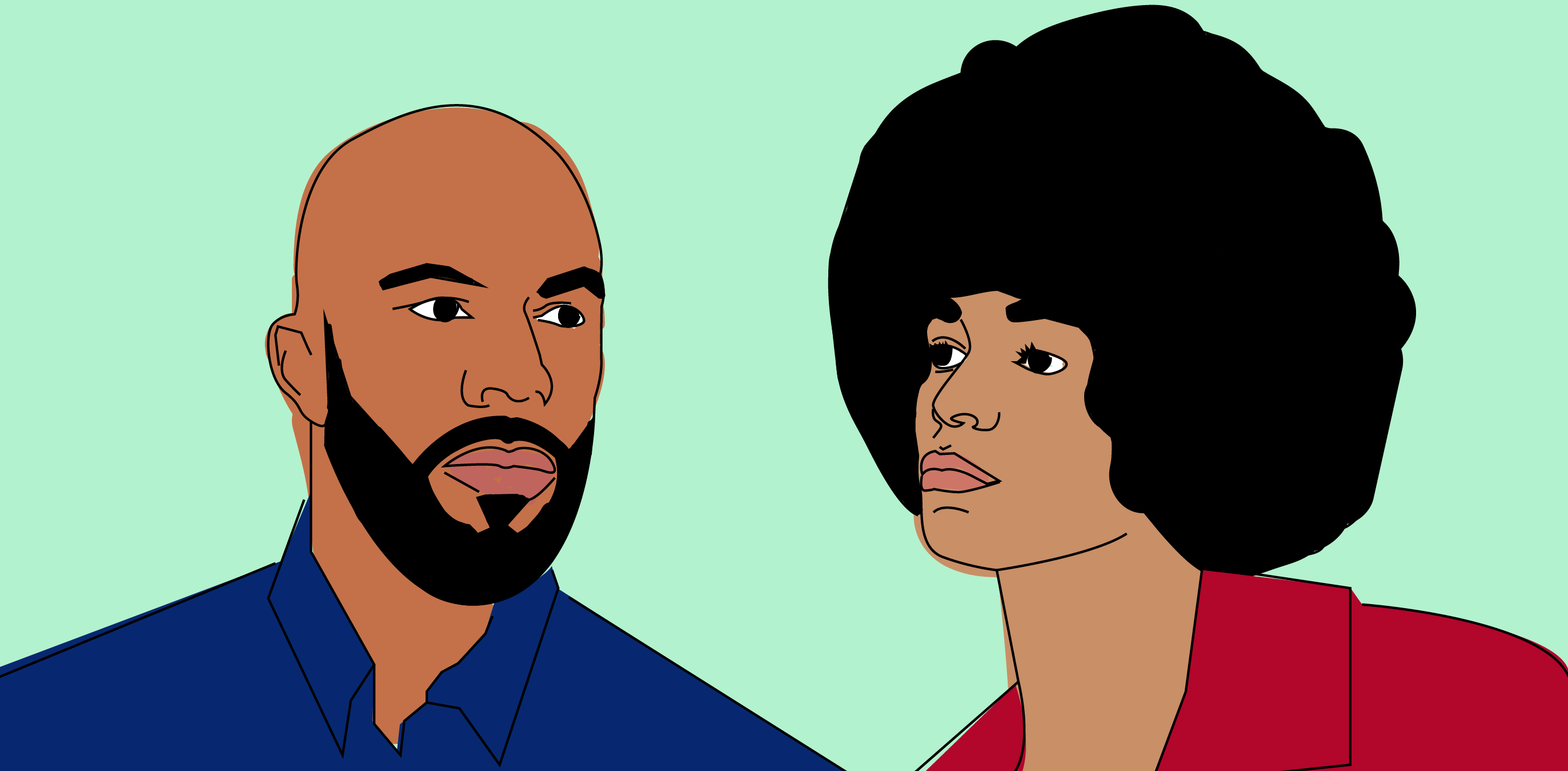A Conversation with Angela Davis and Common

Design by Jenny Dodge
The vibrant Saturday brought an incredible amount of energy to the UCLA campus, all with the help of the one and only Dr. Angela Davis. Along with singer-activist Common, Dr. Davis attended the 2019 Social Justice Summit organized by the the Black Alumni Association. The following article shares some highlights from the evening for those who could not attend.
The evening was filled with discussions about Palestinian rights, Colin Kaepernick, Black Lives Matter, mass incarceration, and more. A topic of recent concern that Dr. Davis touched on was the Civil Rights Institute of Birmingham’s rescinding of the prestigious Fred Shuttlesworth Human Rights Award. The award had initially been granted to Davis, but was revoked when Jewish community members protested that Davis’ advocacy for Palestinian rights conflicted with the message of the award. In other words, certain groups conflated her support for Palestinian rights with antisemitism, or being anti-Jewish, which she clarifies was far from the case. Despite noting her initial shock when an institute in her hometown rescinded the award, she understood it was not personal.
“I realized it wasn’t so much an attack against me. But it was an attack against all people who stand up for justice, especially justice for the Palestinians,” noted Davis.
On the topic of standing up for justice, Common and Davis began a discussion about Colin Kaepernick, the NFL star who took a knee.
According to Davis, “When resistance begins to express itself in sports and in music, that is when we know change is happening. That has always been a measure of change.”
Integrating sentiments of change into our everyday culture allows for a flow of consciousness and awareness about important issues, which certain members of the wider community could often reject if presented in an overtly academic way.
Common added, “The Kaepernick legacy will touch generations forever. People won’t remember Tom Brady the way they remember Kaepernick.”
Despite the nature of some of the issues discussed, both activists kept a positive tone, Davis reiterating that “it is very exciting to be alive at a moment when Black women are being acknowledged. When women in general are rising up all over the world.”
Apart from learning about the struggles of specific movements and groups, Common and Davis shared several themes, such as the need to hold everyone accountable. Even movements led by brilliant leaders (such as the Black Panther Party) can be imperfect, riddled with sexism and hypermasculinity. Another theme brought up multiple times was the idea of collective struggle: contemporary approaches to organizing focus on a collective struggle. If one group is struggling, and if they see another group struggle, the sharing of resources, organizing capacity, and alliance helps build stronger networks of change.
“I think it is so important to not only acknowledge what is happening to us in this country, just because we [should not] myopically focus on Black communities. We have to think about Latinx communities and indigenous communities and Asian-Americans and Muslim-Americans. We also have to look at what is happening beyond our borders.”
The above quote comes from Davis who has done plenty of work internationally. From working with women targeted for their beliefs in Brazil to her prominent call for Palestinian human rights, Davis truly represents justice for all. The truth is, everyone needs to pay attention. The idea of advocating for group struggles and support differs from acknowledging that different systems of oppression target different people.
The real question that comes into play is how do we support communities who fall on planes of oppression that do not affect us without co-opting their communities’ struggles into our own? Davis and Common repeatedly emphasized the importance of education and dialogue coupled with tangible action in bringing about real change.
While it is virtually impossible to share all the wisdom both leaders shared over the course of an hour and a half, the audience was left with one strong feeling: hope. The importance of hope in the wake of conflicts of justice, the importance of unity to face collective struggles, the importance of proactivity to elicit change. Even if we know our actions may not have concrete implications for decades or centuries, keep writing and painting and singing and marching and keeping the discourse alive, because without small steps, no possibility of future change takes place. I encourage all of you to read more about the work of both Angela Davis and Common to remind yourself on the importance of action in activism.




